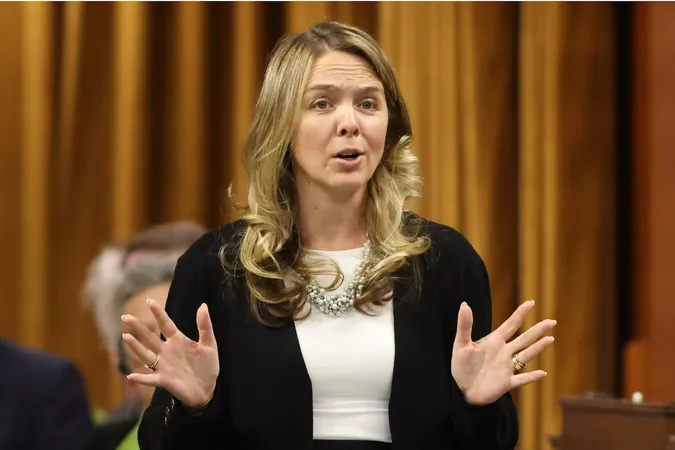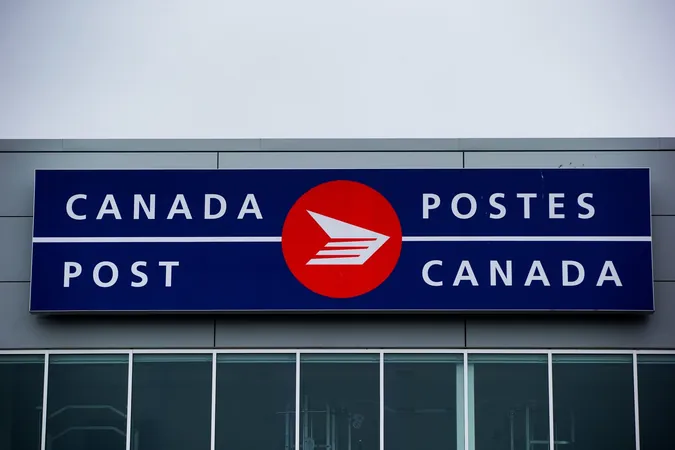
Regulatory Challenges and Rising Insolvencies Blight B.C. Housing Market
2024-11-20
Author: Michael
The housing landscape in British Columbia (B.C.) faces significant hurdles despite its vital role in the Western Canadian real estate sector. As many provinces experience sluggish housing starts, B.C. grapples with unique geographic challenges and complex regulatory issues that cast a shadow over its housing development potential.
Vancouver's distinctive geography — surrounded by mountains and water — combined with recent political shifts from the closely contested provincial election, has raised investment risks for potential buyers. This precarious environment fosters skepticism, urging investors to reassess their positions in a market characterized by high regulatory hurdles and changing economic conditions.
Real estate experts indicate that a blend of factors, including fluctuating rents, vacancy rates, interest rates, and immigration trends, is shaping a convoluted outlook for B.C.’s housing market. “While multifamily units remain in high demand, the current regulatory climate complicates the investment landscape,” says Christopher Alexander, president of RE/MAX Canada. He notes that affordability issues are pushing buyers toward multifamily options, especially as municipal permitting processes in other Western Canadian provinces are more efficient.
However, the long-term prospects for housing construction in B.C. are troubling. Current projections for 2024 indicate that housing starts per capita will plummet to 7.5 units per 1,000 people — the lowest levels seen in a decade, excluding the disruption of COVID-19 in 2020. In contrast, Alberta has seen a modest increase of 3.4% in housing starts per capita over the same timeframe.
“The situation is alarming, especially when we compare to our neighbors,” states Ken Peacock, chief economist with the Business Council of British Columbia. Many industry insiders share his concerns, citing the complicated regulatory environment that complicates new project launches, thereby limiting housing supply.
The influence of political dynamics cannot be overstated. B.C.’s recent political changes have led to concerns about the overshadowing role of the BC Green Party, which has been vocal about implementing stricter controls on rental markets. The notion of vacancy control — where landlords are restricted in how much they can raise rents between tenants — raises apprehension among investors about the potential stunting of housing supply further down the line.
Still, some industry stakeholders hold cautious optimism about the multifamily market's potential turnaround as higher-end rental segments appear to be softening. A decrease in market transaction volume, down nearly 50% from mid-2021, demonstrates lingering apprehension among investors, but some believe that clarity around pricing could foster a resurgence in demand as 2025 approaches.
However, the specter of insolvencies looms large. Rising construction costs, alongside significant interest rate hikes — from 0.25% in March 2022 to 5% by June 2023 — have led to many residential projects facing financial strain. The number of bankruptcies in the real estate, rental, leasing, and construction sectors rose by 29% from Q3 2023 to Q3 2024, highlighting the growing pressure on developers.
Mark Goodman, principal of Goodman Commercial Inc., notes, “While the market conditions may be improving, the high interest rates and costs will likely lead to more properties being liquidated under court orders.” Developers are urged to act swiftly, engaging with lenders to mitigate risks of foreclosure or receivership.
As B.C.'s housing market struggles to regain its footing, investors must navigate increasing complexities while considering whether to seize opportunities now or face competition in a potential recovery phase in 2025. In an environment rife with regulatory risks and economic uncertainty, the question remains: will B.C. real estate overcome the odds or continue to languish in a precarious limbo?









 Brasil (PT)
Brasil (PT)
 Canada (EN)
Canada (EN)
 Chile (ES)
Chile (ES)
 España (ES)
España (ES)
 France (FR)
France (FR)
 Hong Kong (EN)
Hong Kong (EN)
 Italia (IT)
Italia (IT)
 日本 (JA)
日本 (JA)
 Magyarország (HU)
Magyarország (HU)
 Norge (NO)
Norge (NO)
 Polska (PL)
Polska (PL)
 Schweiz (DE)
Schweiz (DE)
 Singapore (EN)
Singapore (EN)
 Sverige (SV)
Sverige (SV)
 Suomi (FI)
Suomi (FI)
 Türkiye (TR)
Türkiye (TR)